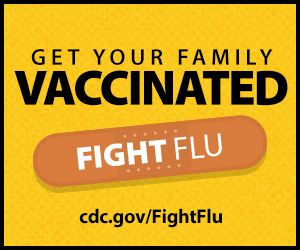Wilson County
Home MenuInfluenza (FLU)
What is Influenza (Also Called Flu)?
The flu is a contagious respiratory illness caused by influenza viruses. It can cause mild to severe illness, and at times can lead to death. The best way to prevent the flu is by getting a flu vaccine each year.
Symptoms of Flu
People who have the flu often feel some or all of these symptoms:
- Fever* or feeling feverish/chills
- Cough
- Sore throat
- Runny or stuffy nose
- Muscle or body aches
- Headaches
- Fatigue (very tired)
- Some people may have vomiting and diarrhea, though this is more common in children than adults.
*It’s important to note that not everyone with flu will have a fever.
How Flu Spreads
Most experts believe that flu viruses spread mainly by droplets made when people with flu cough, sneeze or talk. These droplets can land in the mouths or noses of people who are nearby. Less often, a person might also get flu by touching a surface or object that has flu virus on it and then touching their own mouth, eyes or nose.
Period of Contagiousness
You may be able to pass on the flu to someone else before you know you are sick, as well as while you are sick. Most healthy adults may be able to infect others beginning 1 day before symptoms develop and up to 5-7 days after becoming sick. Some people, especially children and people with weakened immune systems, might be able to infect others for an even longer time.
Preventing Seasonal Flu: Get Vaccinated
The single best way to prevent the flu is to get a flu vaccine each season. There are two types of flu vaccines:
- The "flu shot"-an inactivated vaccine (containing killed virus) that is given with a needle. The seasonal flu shot is approved for use in people 6 months of age and older, including healthy people, people with chronic medical conditions and pregnant women.
- The nasal-spray flu vaccine -a vaccine made with live, weakened flu viruses that do not cause the flu (sometimes called LAIV for "Live Attenuated Influenza Vaccine"). LAIV is approved for use in healthy* people 2-49 years of age who are not pregnant. This version of the flu vaccine is not currently being given.
A "high dose" inactivated influenza vaccine is available for people 65 years of age and older. People in this age group have a higher risk for complications from the flu. "High dose" flu vaccine provides a stronger immune response than traditional vaccines.
About two weeks after vaccination, antibodies develop that protect against influenza virus infection. Flu vaccines will not protect against flu-like illnesses caused by non-influenza viruses.
The seasonal flu vaccine protects against the four influenza viruses that research suggests will be most common. The 2016-2017 flu vaccine will protect against H1N1, and three other influenza viruses. This excludes High Dose Flu vaccine.

